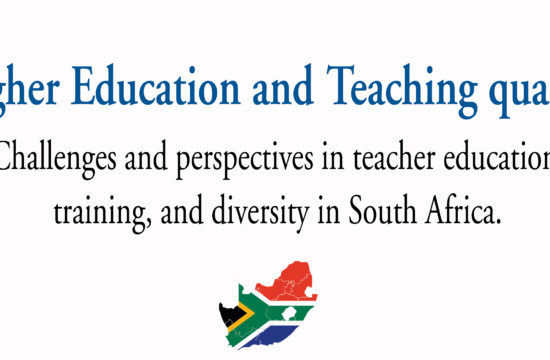Dr. Ayesha Gautam
Assistant Professor, Department of Philosophy, University of Delhi – INDIA
The concept of ‘human rights’ pertains to all men at all times without distinction of any kind, such as race, color, sex, language, religion, political or other opinion, national or social origin, property, birth, or other status. According to the renowned legal jurist Wesley Newcomb Hohfeld, right can be understood as a claim or entitlement or as liberty, power, or immunity. Since this write-up is on the right to education, it is pertinent to note that education is to be seen explicitly as a claim or entitlement rather than as liberty, power, or immunity. Rights are not to be understood as privileges that accrue to some odd people but are to be understood as an entitlement meant for one and all. Further, it is to be noted that the word ‘right’ by definition means not only lawful entitlement but also just entitlement. Rights to education as a human right is thus a just entitlement that is intended for securing a dignified life for one and all. This right is also meant to pave the way for securing socio, political, economic justice, and epistemic justice.
The Universal Declaration of Human Rights(UDHR), which was adopted in 1948, happens to be the first international legal instrument that recognized education as a human right. Article 26 of UDHR states:
1. Everyone has the right to education. Education shall be free, at least in the elementary and fundamental stages. Elementary education shall be compulsory. Technical and professional education shall be made generally available, and higher education shall be equally accessible to all on the basis of merit.
2. Education shall be directed to the full development of the human personality and to the strengthening of respect for human rights and fundamental freedoms. It shall promote understanding, tolerance, and friendship among all nations, racial or religious groups, and shall further the activities of the United Nations for the maintenance of peace. 3. Parents have a prior right to choose the kind of education that shall be given to their children’ [United Nations. 1948. Universal declaration of human rights.https://www.humanrights. com/course/lesson/articles- 26-30/read-article-26.html]
There are three aspects of education that seem to be the focus of Article 26 of UDHR(Universal Declaration of Human Rights). The first section of the article focuses on the level of education. The second section is concerning the goals of the right to education. And the third and the last section is about the paternalistic control over children’s education, which parents have, especially at the preliminary level. In light of challenges thrown to us by the current pandemic (Covid 19), which the entire world is going through, it becomes incumbent to have a relook at each section of Article 26 conceptually and from the point of view of its practical ramification. In the passages which follow, I will try to delve into each of these.
The first section of Article 26, which is about the level of education, emphasizes upon the importance of elementary and fundamental education. It endeavors to guarantee elementary and fundamental education such as basic literacy, numeracy, and other essential skills. The onus of implementing this right is on the State, and it fulfills its responsibility by erecting institutions of learning (schools) and by rendering elementary education free of cost. Here it is important to note that justice is not justice until its realized. As far as the policies (niti in Amartya Sen’s terminology) are concerned, most nations and States seem to have excelled in this job. The real problem is with the procedural (nyaya aspect in Amartya Sen’s terminology) aspect. There are schools but a scarcity of teachers in developing and underdeveloped countries.
Further, there is an epistemic injustice that the less privileged ones end up facing on account of linguistic, cultural barriers and barriers that come from the mode of teaching-learning. The advent of Covid 19 has changed the very meaning of schooling. The change is marked by the shift in teaching-learning processes in terms of its being conducted in the virtual mode rather than offline mode, and this has further broadened the divide between haves and haves not. In places where people find it difficult even to manage two meals, they are being expected to have gadgets via which they can access their right to free education. Even if parents manage to avail these gadgets, the right to free education remains a distant dream because of the lack of technical education required to handle these gadgets. The right to free elementary education would remain an abstract right that is there but is meaningless to talk about until and unless the barriers preventing one from availing these rights are done away with. Further, some queries can be raised about the reasons because of which the mandatory right to free education has been only limited to elementary education. Employment opportunities get limited if the candidates cannot avail technical, professional, or higher education because of the impediment one faces on the grounds of financial and other discriminatory barriers.
Section 2 of Article 26, which is about the aims of education, claims that it is the full development of the human personality and strengthening respect for human rights and fundamental freedoms that Human right aims at. As far as the goal of full development of human personality is concerned, there is no clarity in UDHR about what is meant by that. If by full development of human personality is meant the enhancement of quality of life, then one may very well say that it cannot be achieved by only focusing on elementary education. If by full development of human personality, however, is meant the enhancement of one’s capabilities, then it may be noted that this enhancement can be brought about only by providing such a learning environment to the kids in which they can manifest their full capabilities in true sense. Providing free elementary education alone is not enough; the focus should also be on improvising the teaching-learning environment. In this context, it is worth noting that the teaching-learning environment which has been provided in the form of virtual online mode is somehow preventing the kids who come from less privileged backgrounds from manifesting their full capabilities not because they are less talented but because of lack of resources in the form of electronic gadgets and good internet connection. Full development of human personality would remain a distant dream until and unless efforts are made to do away with these hindrances, which prevent people from realizing their full capabilities.
When one takes a closer look at these aims of the right to education which UDHR speaks about, then the inherent contradictions in the conceptual schema become pretty apparent. The objective of the right to education as per UDHR is to cater to the interest of the individual agents by giving them the liberty to exercise their freedom and by making the State undertake the obligation to fulfill the interest of respective agents without hampering the general welfare and well-being of everyone. Very often, the interest of individuals in terms of the kind of education they want for their children may not conform with the type of education that the State believes is good for the general welfare of the masses. In some circumstances, the conflict becomes unsurmountable, and there is a deadlock. Should there be a uniform policy about the right to education which the State should enforce? If State is conferred the right to decide about the kind of education a child should be getting, then what about the freedom which the right to education confers on individuals. UDHR has somehow not suggested a way to come out of this impasse.
The third and last section of Article 26, which is about the prior right of parents to choose the kind of education that should be given to their children, also raises some concerns about the conceptual schema of the right to education as it appears in UDHR. The objectives enshrined in the 2nd section of UDHR obliges the State to provide education to everyone, while the 3rd section of Article 26 obliges them to refrain from imposing or restricting choices of forms of education which people want for their children. With the advent of Covid 19, parents’ choice to decide about the kind of education they want for their children has somehow got restricted. Irrespective of whether parents are well equipped to handle technology or are willing to let their kids have education in online mode, they are being forced to switch to online mode. One can, therefore, verily raise questions about the relevance of this paternalistic right of parents in this context. To conclude, it can be said that in the light of challenges posed by the Covid 19 pandemic, it would be prudent for United Nation to reexamine and revise Article 26.









